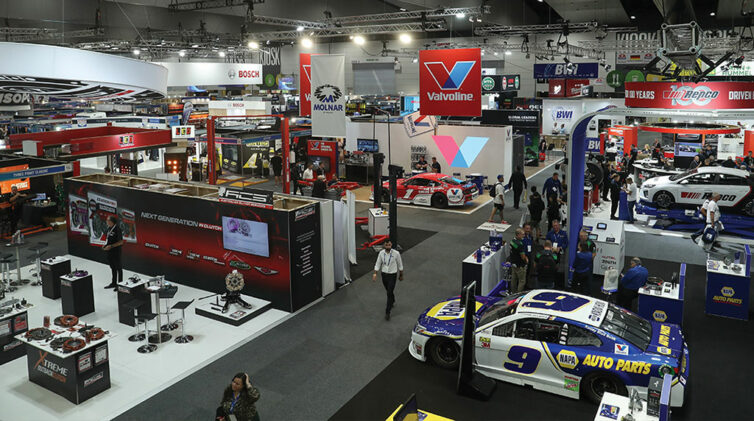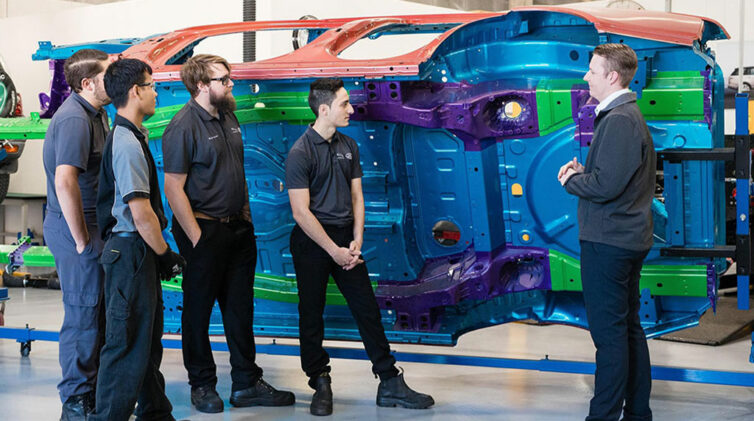The new focus of the Environment Protection Authority Victoria (EPA) came into effect from July 1, 2021, and the VACC said the industry – particularly auto recyclers and wreckers – should review their current processes in order to minimise harm to human health and the environment from pollution and waste.
VACC CEO Geoff Gwilym said “this needed to happen”.
“It’s also a major step in the right direction towards an end-of-life vehicle scheme,” he said.
“But for now, it’s about properly supporting business owners and making sure they know what their new obligations are – as well as what they face in terms of non-compliance repercussions.”
The VACC and Auto Parts Recyclers Association (APRA) said tightening of EPA regulations is set to have a ripple effect across the automotive industry.

Geoff Gwilym
Dale Imlach, APRA chairman and director of Imlachs Self Serve Auto Parts, said the rules will result in greater business transparency and accountability.
“The new EPA permission system requiring auto recyclers to be registered, combined with the requirement for vehicle dismantling and recycling activities to be undertaken at a ‘lawful place’ is set to vastly increase the transparency of auto recycling operations throughout Victoria,” Mr Imlach said.
“We are encouraged that, with time and investment, a level playing field and environmental improvement can be achieved.
“The issue of unlicensed businesses undermining licensed businesses in our industry – and the waste industry generally – has constrained business development over the past 20 years.”

Dale Imlach
The Environment Protection Authority of Victoria said that work activities in the auto recycling industry that can produce pollution and waste include:
- Dismantling vehicles causing increased noise and vibration
- Draining liquids from vehicles
- Stockpiling baled vehicles on-site
- Use of equipment such as oxy cutters.
The EPA’s “Auto recyclers guideline (publication 1810)” has an overview of potential environmental risks within the auto recycling industry and controls what managers can put in place to reduce any risk to human health and the environment.
The EPA said the guideline aims to help manage the obligations of people in the auto industry. These can include:
- The management of different types of waste, storage, collection, transport and removal
- Working out if you have contaminated land and preventing contamination of stormwater and groundwater
- Managing how you store and handle liquid and solid chemicals, spill response and cleanup, and managing volatile liquids
- Scheduling works, community consultation, managing noise and vibration at the source
- Emergency management, including fire management.
The VACC says that it has long been an advocate of the proactive preventative approach now enshrined in the legislation, having previously worked directly with the EPA to create the Auto Recyclers Guideline.
The guideline has practical measures to prevent or minimise the risk of harm to human health and the environment as a result of auto recycling operations.
“More generally, as most automotive sites produce some form of what EPA defines as Reportable Priority Waste, the VACC is conducting a series of webinars supported by the EPA, communicating the importance of correct waste classification, working with licensed collectors and using a new and compulsory Waste Tracker program,” the VACC said.
The VACC maintains that the new legislation is a positive step, and that the automotive industry is behind EPA efforts.
It said it will be a process but businesses can comply with the law by identifying, controlling, and managing their risks to the environment – reaching out to industry bodies and readily available EPA material for guidance.
“The automotive industry continues to be proactive and work collaboratively with bodies like EPA,” Mr Gwilym said.
“We all have the same goal when it comes to the environment and wanting to keep people safe.
“However, providing practical solutions and resources to well-meaning business owners is paramount. Operational processes need to be clear and easy to implement if there is going to be real change.”

By Neil Dowling












 Read More: Related articles
Read More: Related articles

